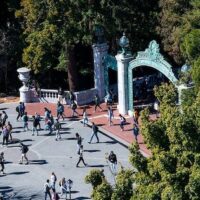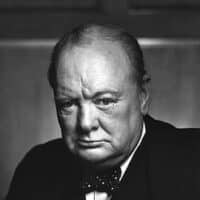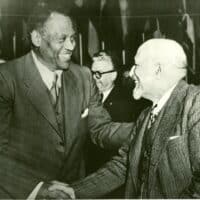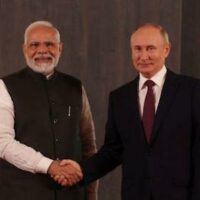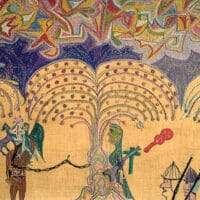-
The apocalypse in popular culture
From plagues and zombies to nukes, asteroids and tidal waves, Siobhan McGuirk and Marzena Zukowska assess how apocalyptic fiction reflects and shapes the anxieties of our age.
-
Songs about Che
Commodification of the iconic image of Ernesto ‘Che’ Guevara has failed to dim the revolutionary light that burned on after his CIA assassination on 9 October 1967.
-
Lessons from the rise of Mussolini, 100 years on
One hundred years ago, in October 1922, Benito Mussolini’s paramilitary blackshirts marched on the Italian capital to demand the dissolution of the government of Prime Minister Luigi Facta.
-
We need a new Trade Union of the poor rooted in the Global South: The Forty-Third Newsletter (2022)
Chaos reigns in the United Kingdom, where the prime minister’s residence in London–10 Downing Street–prepares for the entry of Rishi Sunak, one of the richest men in the country.
-
Ambedkar, Buddhism and Dalit liberation
Events of the last few days indicate AAP and BJP worship Ambedkar purely for electoral gains and not from commitment to his ideas.
-
Ukrainian Nationalists have long history of anti-semitism which the Soviet Union tried to combat
While Ivy League professors equate the Soviet Union with Nazi Germany, the Soviets fought the Nazis and ended violent anti-Jewish pogroms—which now threaten to return.
-
Israel lobby fabricates anti-Semitism crisis at Berkeley
In a crisis manufactured by Israel lobby groups and right-wing media, law students at the University of California at Berkeley are being accused of anti-Jewish bigotry because of their public pledge not to host speakers who support Israeli apartheid.
-
From Churchill to NATO: How the West built and empowered Italian fascism
This year is the centenary of the March on Rome, the coup that brought Mussolini’s fascist party to power in Italy in 1922.
-
The main losers of 1979, the creators of the new revolution in Iran
Recently in Iran’s largest city, Tehran, Mahsa Amini, a twenty-two-year-old Kurdish woman, was arrested by Iran’s “morality police” for allegedly wearing her government-mandated hijab inappropriately. She was beaten, and three days later, she died.
-
‘We need a Labor Movement that’s a lot more militant and willing to challenge the status quo’
Joe Burns, director of collective bargaining with the CWA-AFA union, discusses his new book, “Class Struggle Unionism, and the importance of a militant labor movement.”
-
For African Americans, employing a radical internationalist perspective is not a luxury, but a necessity
Black people in this country must reconnect with the internationalist tradition in order to understand the crises taking place around the world and in the U.S. Domestic and international issues cannot be separated.
-
Global ruling classes welcome fascist-led government in Italy
The Italian general election was a historic win for the far right.
-
Residence of Swazi pro-democracy leader bombed by alleged state-sponsored hit-squad
Mlungisi Makhanya, president of one of the largest pro-democracy political parties, PUDEMO, whose house was attacked “remains unshaken, defiant”.
-
Lemons, mimosas, and Stalin’s shovel
The only Russian leader in a thousand years who was a genuine gardener and who allowed himself to be recorded with a shovel in his hand was Joseph Stalin (lead image, mid-1930s). Compared to Stalin, the honouring of the new British king Charles III as a gardener pales into imitativeness and pretension.
-
Fascism returns to Europe’s centerstage
Meloni insists that she isn’t a fascist herself, yet her party’s flag includes the symbol of the old pro-Fascist party— the tricolor flame.
-
India’s gaffe at Samarkand
Prime Minister Narendra Modi’s meeting with Russian President Vladimir Putin at Samarkand on September 16 after the SCO Summit turned into a media scandal.
-
Ten Theses on Marxism and Decolonisation
The Cuban Revolution came about in a country subordinated to the U.S. from all points of view. Although we had the façade of a republic, we were a perfect colony, exemplary in economic, commercial, diplomatic, and political terms, and almost in cultural terms.
-
Far right makes gains in Swedish elections
In 1994, 15-year-old Jimmie Åkersson sought out a neo-Nazi party. Today, he’s brought that party into the mainstream.
-
Zelensky quietly deletes photo of his bodyguard’s pro-Hitler patch
The Ukrainian President published a photograph on his social media channels showing one of his security escorts bearing a patch referencing the personal bodyguard unit of Adolf Hitler.
-
Marx’s writings on Asia: A sober assessment
Throughout most of recorded history, Asia has been the wealthiest region in the world.


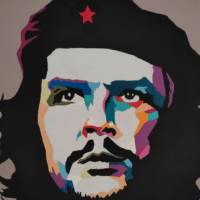
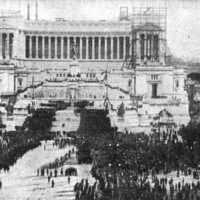
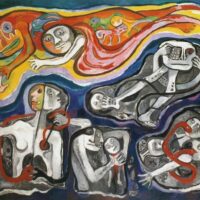
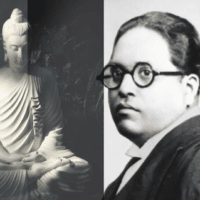
![Jewish girl flees in terror in Lviv during anti-Jewish pogrom. [Source: wikipedia.org]](https://mronline.org/wp-content/uploads/2022/10/Screen-Shot-2022-10-20-at-82919-PM-200x200.png)
